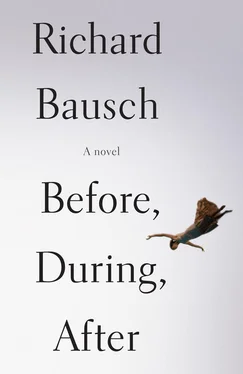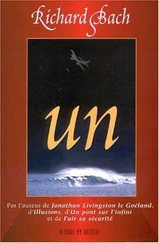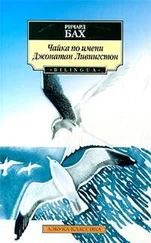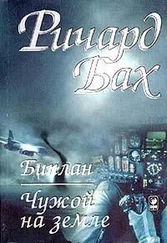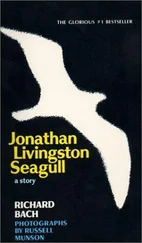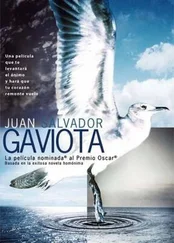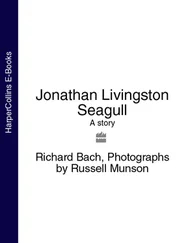“I guess there’s nothing at any of the other hotels near here?”
“Everything’s booked.”
Faulk went to a side wall and set down his bag but a second later thought better of it and walked back to the station and to the ticketing area to wait along with the others. Hours went by, people moving incrementally closer, bending and picking up bags and setting them down, or simply standing with arms folded. The murmurous racket of the hall went on, and there was something nearly solemn about it. He thought of his training, the things he knew to say to shock and grief, but there was nothing to say, here, with everyone seeking only to go home. A priest came by him, hurrying somewhere, and Faulk saw his not-quite-looking-at-anyone face — he was just a man in a rush to get wherever he had to go, a little frightened and sick at heart.
Trains were leaving for Boston and points north. When he got to his window, he handed over his ticket for Washington and asked when the next train was. The clerk was a leathery-faced ruddy man with large green eyes and sandy hair. “There’s one coming into the station in about fifteen minutes from Boston. But it’s not an express.”
“I don’t care about that,” Faulk said.
“This ticket’ll work, then. Go right up those steps.”
Faulk thanked him and started for the stairs, feeling the need to hurry and expecting many people to be rushing behind him. But no one followed. He went up the stairs and out on a platform, thinking that he must not have understood the directions properly. He believed the train he’d arrived on was below this floor, and he almost started back down. But here on the platform was another man, Asian, a boy, really, no more than twenty-five years old, sitting on the bench, leaning forward with his hands folded, his elbows resting on his knees. “The train from Boston,” he said, simply. Faulk sat down next to him and adjusted his bag at his feet. The young man wore a business suit without the tie. His shirt was unbuttoned. It was very hot here. He turned and looked at Faulk and then looked away. He folded and unfolded his hands. Finally he looked over and said, “Were you there?”
Faulk nodded. “Up on Fifty-Fourth Street.”
“I was in the second one, the south tower,” the boy said, and took in a deep breath. It was as if something had struck him in the chest. He straightened, attempting to collect himself. “They — they told us — we were all going down the stairs — and they told us it was all right, we could go back up. But I didn’t like it, and I kept going down.” He gasped, trying to master himself. “They — all my friends — they — they went back.” And with that he let go, crying quietly, hands over his mouth. Then he reached in the pocket of his coat for a handkerchief, opened it, and put it over his face. “I’m going home, to Baltimore. My parents live in Baltimore.”
“Washington,” Faulk said. He felt the uselessness of it. “I’m a priest. If there’s anything I can do …” The words seemed false, and in the next moment he realized that they were false. “I was a priest,” he said, low, wanting to be exact. It was ridiculous.
The boy’s demeanor seemed to underscore the thought. He sat and stared off and waited for the train, and around them the noise of the station increased, a wave of distraught voices and sounds coming from the very walls. The train was coming in. The sound filled the hot little space where they sat, and it seemed strangely out of place, not something sensibly connected to this narrow room with its bench and its posters on the opposite wall advertising Broadway plays. They moved to the doorway leading out to the track. When the train stopped before them and the conductor jumped down and set the stool for them to step up, the boy hesitated. Faulk saw him wait to see which way he, Faulk, would go — into which car, the left or the right. He went left, took the first seat — the car was nearly empty — and glanced over his shoulder. The young man had gone the other way. The train pitched forward, rocking, and Faulk looked out the soiled window at the yellow lights, the empty platform, the vague shapes in the dimness beyond the wide expanse of other tracks, the cement abutments, switches, painted signs and symbols. The train was gathering speed, and once more, out of the tunnel, the light changed to daylight. But daylight was fading. Gazing at the burnished glow along the marshy fields south of Newark, he thought of how he had failed to be of help to anyone — how, until the minutes with the young man on the station platform, his one concern had been getting away from the city. He had spent most of his adult life performing the very tasks that were called for in this situation, yet he had only reacted, a numb, fearful refugee, like all the others, trying to get out.
6
It seemed to Natasha, looking out from her balcony, that the beach was less crowded. The part of the sky not barricaded by clouds had turned darker. It was almost black at its height.
Down in the lobby, she paused in front of the row of phones. People were still struggling to get through; others still waited to try. “Is anyone getting anyone in New York?” she said to a man who was holding a glass of something bright red with a little paper umbrella in it.
“Are you kidding?” the man said, drinking.
She felt the nausea returning and hurried into the ladies’ room, which was crowded and deathly quiet. There was something about a room this small that made for silence. Everyone had a protective shell of self-concern. She couldn’t breathe.
Back in the bar, Nicholas Duego was still there, with a fresh drink, leaning on the shiny surface with both elbows, head down, one hand making a swirling motion to move the ice and dregs of orange juice and vodka in his glass. The bar smelled of fear and the sweat of exertion, alcohol and tobacco — mixed with several kinds of fried food. She ordered a bourbon on ice from the small man with the gold tooth, and when he brought it she swallowed most of it, feeling it as a cold and then searing place at her middle. She grasped the glass with both hands, eyes fixed on the glossy water-spotted expanse of the bar.
“Are you all right?” Duego asked. “You have been gone a long time.” His eyes were not quite focusing. He drank and then put his head back down.
She signaled the bartender, indicating her empty glass. He nodded at her but went on with what he was doing.
The bar was growing more crowded, the noise level increasing. Alcohol and crisis had loosened some tongues. She couldn’t see clearly through the gathered faces, the crush of people pressing to the bar. She thought of Constance out by the beach somewhere, with Skinner, and the night coming on.
She kept replaying Constance saying Faulk could not have been in either building when the planes struck, and the old couple on the path, and the woman who knew exactly when the towers opened for tourists. Nine-thirty. Nine-thirty.
She went out onto the veranda, aware of herself now as being drunk, feeling nothing good in it, no release of tension or anxiety, but only the amplification of her fear, the need to hold on to it — as if to let it go would be to tempt God: it would be when she relaxed into the belief that Faulk was safe that she would discover something awful had happened.
But in fact something awful had already happened, and the images of it were still being broadcast, in little windows above the talking heads on the TV. She saw the irregular light at the entrance of the lobby, where an elderly man stood with a stricken expression on his face, staring in at the screen. She felt selfish, looking at this. She thought she might speak to him, but when she got to where he had been, he was gone.
It was like moving through a patchy, shifting dream.
Читать дальше
